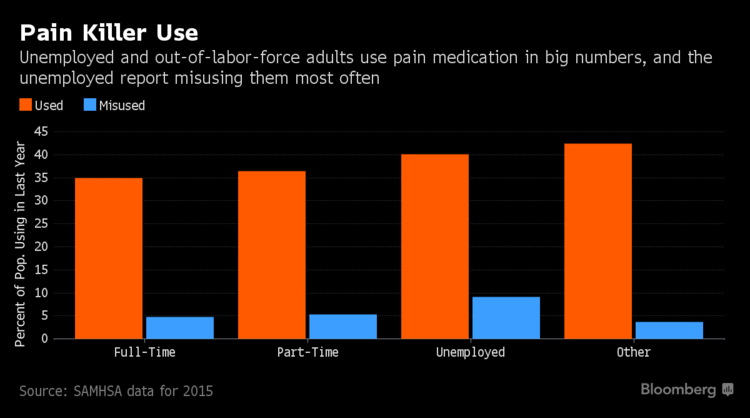Poor labor market opportunities for America’s working and middle class seem to have helped fuel opioid addiction. In turn, pill and heroin use can worsen employment chances for addicts, and can lead to criminal records that dim applicants’ prospects for years to come.
While regional Fed banks haven’t been leading the push when it comes to researching the epidemic, they’re increasingly noting its fallout.
Beige Book
“Manufacturing contacts in Louisville and Memphis reported difficulties finding experienced or qualified employees, with some citing candidates’ inability to pass drug tests,” the St. Louis Fed reported in the July 12 Beige Book, a survey of regional economic conditions. Businesses have also raised the issue as a barrier to finding workers in conversations with Philadelphia Fed President Patrick Harker.
At the Cleveland Fed’s summit, talk about the crisis wasn’t reserved for the opioid-specific panel: it came up throughout the other sessions, said Mary Helen Petrus, assistant vice president in the Cleveland Fed’s Community Development Department.
“It’s an economic issue. It has economic implications, but it’s a whole lot more than that,” Petrus said. “It’s cross-cutting.”
The Boston Fed published research in September on the link between local economic despair and opioid use in New England. Princeton University economists Anne Case and Angus Deaton suggested in their work on rising middle-age mortality among the white working class that the breakdown of traditional economic and social structures have probably contributed to a step up in overdose, alcoholism and suicide.
“We are seeing, as I mentioned, an increase in death rates -- which is extremely unusual,” Yellen said last week. That trend is “partly reflecting opioid use, and it is obviously a very serious and heartbreaking problem.”
This article was provided by Bloomberg News.
“I do think it is related to declining labor force participation among prime-age workers,” Yellen told Senators last week, when asked about the crisis. “I don’t know if it’s causal or if it’s a symptom of long-running economic maladies that have affected these communities and particularly affected workers who have seen their job opportunities decline.”








